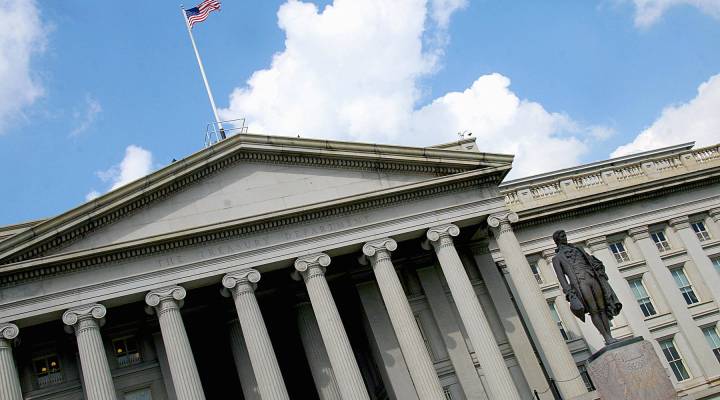
What is the debt ceiling? An explainer

The debt ceiling — or the debt limit, as the Treasury calls it — is, quite simply, the amount of money that the government is legally allowed to borrow.
Every year, the Congress decides how much it’s going to spend – that’s the budget. And depending on what it puts in the budget, the government gets a load of bills in the mail every month. Just like every American does. The U.S. government’s bills are quite a bit bigger: It has to pay its employees; it has to pay its contractors; it has to pay for the stuff that its buys; and it has to pay the interest on its debt.
The arm of the government that makes those payments is the Treasury. It uses the money that the government collects in taxes to pay most of the bills. And if it hasn’t got enough money, then it borrows some more to make up the difference. Again, like an American would do with a credit card.
But the Treasury’s only allowed to borrow up to a certain amount. And it’s credit limit — the debt ceiling — is decided by Congress. If it needs to borrow more, it has to get permission to do so.
That’s right — it’s Congress that decides the amount we can spend, and it’s Congress that decides the amount we can borrow. Right now, those amounts aren’t matching up. And if Congress can’t get them to match, then some of those bills aren’t going to get paid.
And that’s a problem.
There’s a lot happening in the world. Through it all, Marketplace is here for you.
You rely on Marketplace to break down the world’s events and tell you how it affects you in a fact-based, approachable way. We rely on your financial support to keep making that possible.
Your donation today powers the independent journalism that you rely on. For just $5/month, you can help sustain Marketplace so we can keep reporting on the things that matter to you.


















